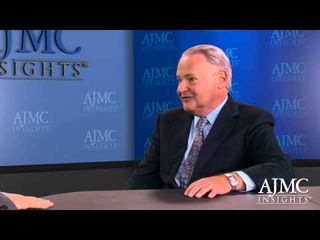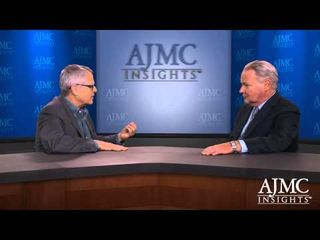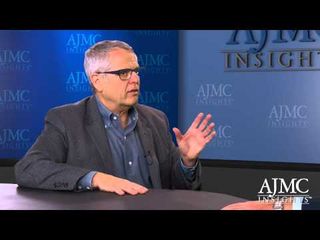
Oncology
Latest News
Kolodziej on Precision Medicine: Standardization, Transparency Needed in Data Collection
Latest Videos

CME Content
More News

Two studies presented at the recently concluded 2016 Quality Care Symposium, hosted by the American Society of Clinical Oncology, proved that hospital-based palliative care programs achieve their proposed objectives.

The timely panel took place just after FDA issued a report on why it feels regulatory oversight of testing is necessary.

A thorough family history is the foundation of precision medicine, according to the 2015 president of the National Society of Genetic Counselors.

Imbruvica, developed by Janssen for the treatment of adult patients with relapsed or refractory chronic lymphocytic leukemia who are unsuitable to receive chemo-immunotherapy, has been rejected by UK’s National Institute of Health and Care Excellence.

Emanuel F. Petricoin III, PhD, said patients have much to gain from "democratization" as clinical trials move beyond academic centers.

The authors said the incidence rates in type 1 diabetes compared with type 2 show that insulin treatment is not to blame for increased cancer rates.

The pharmaceutical industry needs to rethink its approach to packaging cancer drugs into a one-size vial to avoid drug wastage and save over $1.7 billion in 2016.

What we're reading, March 1, 2016: physicians greet Merck's new hepatitis C drug with caution; 20% of Puerto Ricans could be infected with the Zika virus in 2016; and nearly $3 billion wasted in cancer medicines.

The event saw participation by patient advocacy groups, health economists, health policy researchers, and patient advocacy groups-the primary interest of the participants was to identify the healthcare-associated economic hardships faced by patients and their caregivers across therapeutic areas and discuss potential solutions that could help alleviate some of this burden.

Research led by investigators at the Vanderbilt University Medical Center has concluded that adjuvant chemotherapy improved survival compared with patients who received adjuvant chemoradiation in pancreatic cancer.

The top stories in managed care this week include findings on cancer survival disparities, CVS Health claimed drug spending growth slowed in 2015, and Horizon Blue Cross Blue Shield of New Jersey's OMNIA plan is interfering with existing patient-centered medical homes.

A new proposal from researchers at MIT and Dana-Farber offers a remedy for patients to cover high healthcare costs: securitized consumer healthcare loans.

A new study questions the maximum-tolerated-dose approach in cancer.

There are multiple barriers to accessing innovative oncology care from the design of healthcare benefits to a patient’s position on the federal poverty level, explained Daniel J. Klein, president and CEO of the Patient Access Network (PAN) Foundation.

Emergency room overutilization is a significant issue in oncology care and may increase healthcare expenditures while lowering the quality of patient care.

A collaborative study conducted across cancer treatment centers in the United States has identified malignant brain tumors as the most common cause of cancer-related deaths in adolescents and young adults aged 15 to 39 years.

What we're reading: drug makers are not reporting complete information about side effects; Johnson & Johnson will pay $72 million to the family of a woman who blamed her ovarian cancer on talcum powder; and Maine and Utah make new attempts at expanding Medicaid.

Experts and biological researchers aren’t completely convinced with the president's cancer moonshot initiative and the released budget.

Survival in children with acute lymphoblastic leukemia could be significantly influenced by their family’s socioeconomic status, a new study published in Pediatric Blood and Cancer has found.

Ted Okon, MBA, of the Community Oncology Alliance, will participate in a tweetchat with The American Journal of Managed Care on February 29, 1-2 pm ET, to discuss the 340B program, payment reform, the Oncology Medical Home, and more.

BMJ's study found no link bewteen incretin-based drugs and pancreatic cancer but said because of the latency of the cancer, adverse effects would have to be watched.

A new report by the American Cancer Society points to disparities in cancer survival between whites and blacks for certain cancers, although the reasons for these differences remain unconfirmed.

The online tool includes worksheets for the most commonly used cancer treatment protocols that care providers can directly access through the electronic health record.

The supplemental new drug application submitted by Pfizer, the drug's manufacturer, included phase 3 results from the PALOMA-3 trial.

What we're reading, February 22, 2016: new legislation proposes placing a 3-year moratorium on advertising newly approved drugs; the prevalence and incidence of stroke among young adults has increased significantly; and more women with breast cancer are choosing outpatient mastectomies.














